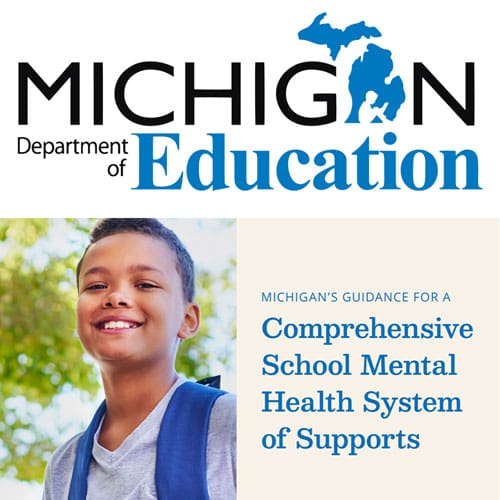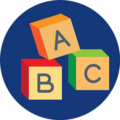Safe & Healthy Schools

About Safe and Healthy Schools
Safe and Healthy Schools support districts throughout Wayne County to explore, adopt, and implement best-practice strategies to meet the physical, social, and emotional health needs of all students. Consultation, professional learning, and networking is available to all schools, and for schools without access to a school nurse, a cost-sharing program for School Nurse Consulting Services is available. Working collaboratively with schools and community partners, data-driven decision-making is encouraged and supported. For more information, please contact us.
Whole School, Whole Community, Whole Child (WSCC) Model
According to the Centers for Disease Control and Prevention, the education, public health, and school health sectors have each called for greater alignment that includes, integration and collaboration between education leaders and health sectors to improve each child’s cognitive, physical, social, and emotional development. Public health and education serve the same children, often in the same settings. The Whole School Whole Community, Whole Child (WSCC) model focuses on the child to align the common goals of both sectors to put into action a whole child approach to education.
The WSCC model, comprised of five youth tenets and ten school components, meets the need for greater emphasis on both the psychosocial and physical environment as well as the increasing roles that community agencies and families play in improving childhood health behaviors and development. The WSCC model also addresses the need to engage students as active participants in their learning and health.
Health and education affect individuals, society, and the economy and, as such, must work together whenever possible. Schools are a perfect setting for this collaboration.
Resource Highlights
Student Health Data Resources
Michigan Profile for Healthy Youth
The Michigan Profile for Healthy Youth (MiPHY) is an online student health survey offered by the Michigan Departments of Education and Community Health to support local and regional needs assessment. The MiPHY provides student results on health risk behaviors including substance use, violence, physical activity, nutrition, sexual behavior, and emotional health in grades 7, 9, and 11. The survey also measures risk and protective factors most predictive of alcohol, tobacco, and other drug use and violence. MiPHY county-level results, along with other school-reported data, will help schools make data-driven decisions to improve programming as well as provide data required by grant applications.
Youth Risk Behavior Survey
Coordinated through the Centers for Disease Control and Prevention (CDC), the Youth Risk Behavior Survey (YRBS) monitors priority health-risk behaviors and the prevalence of obesity and asthma among youth and young adults. It includes a national school-based survey conducted by the CDC and state, territorial, tribal, and local surveys conducted by state, territorial, and local education and health agencies and tribal governments. The CDC’s YRBS Explorer provides visualization of YRBS data by year and allows public site users to view data.
Who Needs Training
Tier 1 (Awareness)
All School Staff
- Approximately 15 minutes per health condition.
- The Big 4 (Diabetes, Asthma, Allergy, Seizures) should be delivered every school year.
- Scheduling delivery on Professional Development Days or during Staff Meetings works well for many schools.
Tier 2 (Emergency Care)
MERT Team members, Student-Specific Teachers, Additional Personnel (e.g., Coaches, Extra-curricular Staff Leaders, Bus Drivers, etc.)
- Training Time varies depending on health condition.
- Schedule as close to the start of the school year as possible and as needed throughout the school year, or as soon as possible following diagnosis.
Tier 3 (Daily Care & Support)
Student-specific Health Team, generally 4-6 people (e.g., Building Administrator, two Designated School Personnel (DSP), and at least one backup DSP)
- Training time varies depending on health condition.
- Schedule as close to the start of the school year as possible and as needed throughout the school year, or as soon as possible following diagnosis.
Medical Management Plans and Administration Authorization Forms
Medical Emergency Response Team (M.E.R.T.) Protocol
Medical Emergency Response Team (M.E.R.T.) (Drive)
Establish effective teams to respond to school medical emergencies with highly effective protocols. This training includes standardized emergency plans and current best practices and skills to care for students with asthma, allergies and other medical conditions including sudden cardiac arrest. Please email our Administrative Assistant Arlo McMillian at mcmilla@resa.net to get your staff registered.
Additional Resources
Health Education
Michigan Department of Education - Health Education
Michigan Department of Education - HIV/STD & Sexuality Education
Michigan Department of Education - Compiled Laws Related to Teaching HIV, Health, PE, & Sex Ed
Michigan Model for HealthTM PreK-12 Curriculum
Michigan School Health Coordinators’ Association (MiSHCA)
Mental Health
Michigans Comprehensive School Mental Health System of Supports
988 Lifeline (Call or text 988)
Crisis Text Line (Text HOME to 741741)
Michigan Department of Education - Mental Health
Student Health
Michigan Department of Education: School Health Services
Michigan Department of Education & Michigan Department of Health & Human Services: Managing Communicable Diseases in Schools
Michigan Association of School Nurses (MASN)
School Safety
Toolkit 1 - School Crisis Communication Planning
Toolkit 2 - Emergency Preparedness for School Events
Toolkit 3 - Best Practices for Investigating Student Online Activity
Michigan State Police - Office of School Safety
Ok2Say - Michigan’s Student Safety Program
SchoolSafety.gov
Professional Development
View Our Newsletter
To learn more, check out our Safe & Healthy Schools Meet the Team SMORE!











